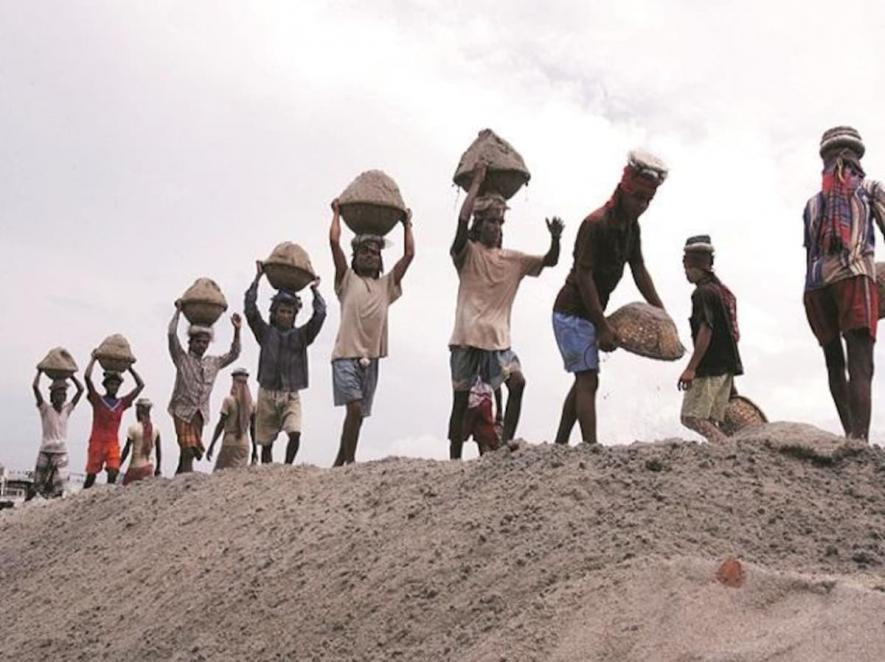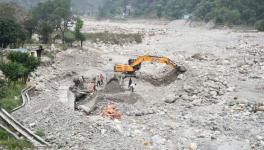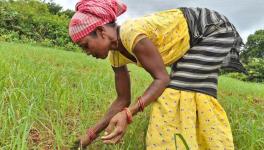India Lost 259 Billion Hours of Labour Due to Climate Change, New Study Finds

Representational Image. Image Courtesy: Business Standard
India lost around 259 billion hours of labour annually between 2001 and 2020 due to the impacts of humid heat, according to a recent study published by researchers at Duke University. The loss of these productive hours costs India $624 billion (Rs 46 lakh crore), equivalent to almost 7% of the country's 2017 gross domestic product (GDP).
The study used the term 'humid heat' to refer to conditions that are either hot and dry or hot and humid enough to cause decreases in labour productivity.
According to the research, globally, humid heat may currently be associated with over 650 billion hours of annual lost labour (148 million full-time equivalent jobs lost), 400 billion hours more than previous estimates. The study said, "These differences in labour loss estimates are comparable to losses caused by the COVID-19 pandemic."
Between 2001 and 2020, exposure to high humid heat is associated with approximately 677 billion hours of lost labour per year, with 72% of the global working-age population (∼4 billion people) living in locations with background climate conditions that would cause heavy labour losses of at least 100 hours per person per year.
Previous estimates had indicated that labour loss due to humid heat exposure was approximately 248 billion hours per year, with 40% of the global working-age population (∼2.2 billion people) living in locations with heavy labour losses over 100 hours per person per year.
Globally, annual heat-induced labour productivity losses are estimated at 2.1 trillion in 2017 PPP$ (Purchasing Power Parity), and in several countries are equivalent to more than 10% of gross domestic product. "Over the last four decades, global heat-related labour losses increased by at least 9% (>60 billion hours annually using the new empirical model), highlighting that relatively small climate changes (<0.5C) can have large impacts on global labour and the economy," the study said.
Labour losses weighted by the working-age population engaged in outdoor labour are highest in South, East, and Southeast Asia, where large numbers of working-age people work in agriculture. Specifically, labour losses are most pronounced in India, accounting for almost half of the total global losses and experienced over four times the labour losses of China's second most impacted country.
Per capita working-age population labour loss translates to a job-equivalent loss of 155 million jobs globally per year, with India accounting for nearly half of this loss (equivalent to approximately 62 million jobs lost). The study highlighted that these annual losses are comparable to temporary work loss during the global COVID-19 lockdowns, which are estimated to have caused workhour losses equivalent to approximately 130 million full-time jobs in the first quarter of the pandemic.
"The impacts from high humid heat we report here exceed or are comparable to those caused by other pressing environmental health challenges, such as air pollution, which in 2016 caused 1.2 billion lost working days or lack of safe drinking water and sanitation, which was projected to cause an estimated 22 billion lost workdays in 2015," the study said.
These labour losses translate to high economic costs. Impacts also vary significantly by country, with China and India again experiencing enormous losses, and Indonesia and the United States showing over 90 billion PPP$ losses per year. India experiences annual productivity losses from high humid heat equivalent to almost 7% of its 2017 GDP.
In conclusion, the researchers said that the scale and distribution of the impacts of humid heat on labour loss indicate significant risks to the resilience and well-being of outdoor workers and the families that rely on these workers for their livelihood. "The ability of workers to earn incomes in safe work environments is important for tackling global poverty, addressing household climate resilience, and for national economic development," it said.
Get the latest reports & analysis with people's perspective on Protests, movements & deep analytical videos, discussions of the current affairs in your Telegram app. Subscribe to NewsClick's Telegram channel & get Real-Time updates on stories, as they get published on our website.
























